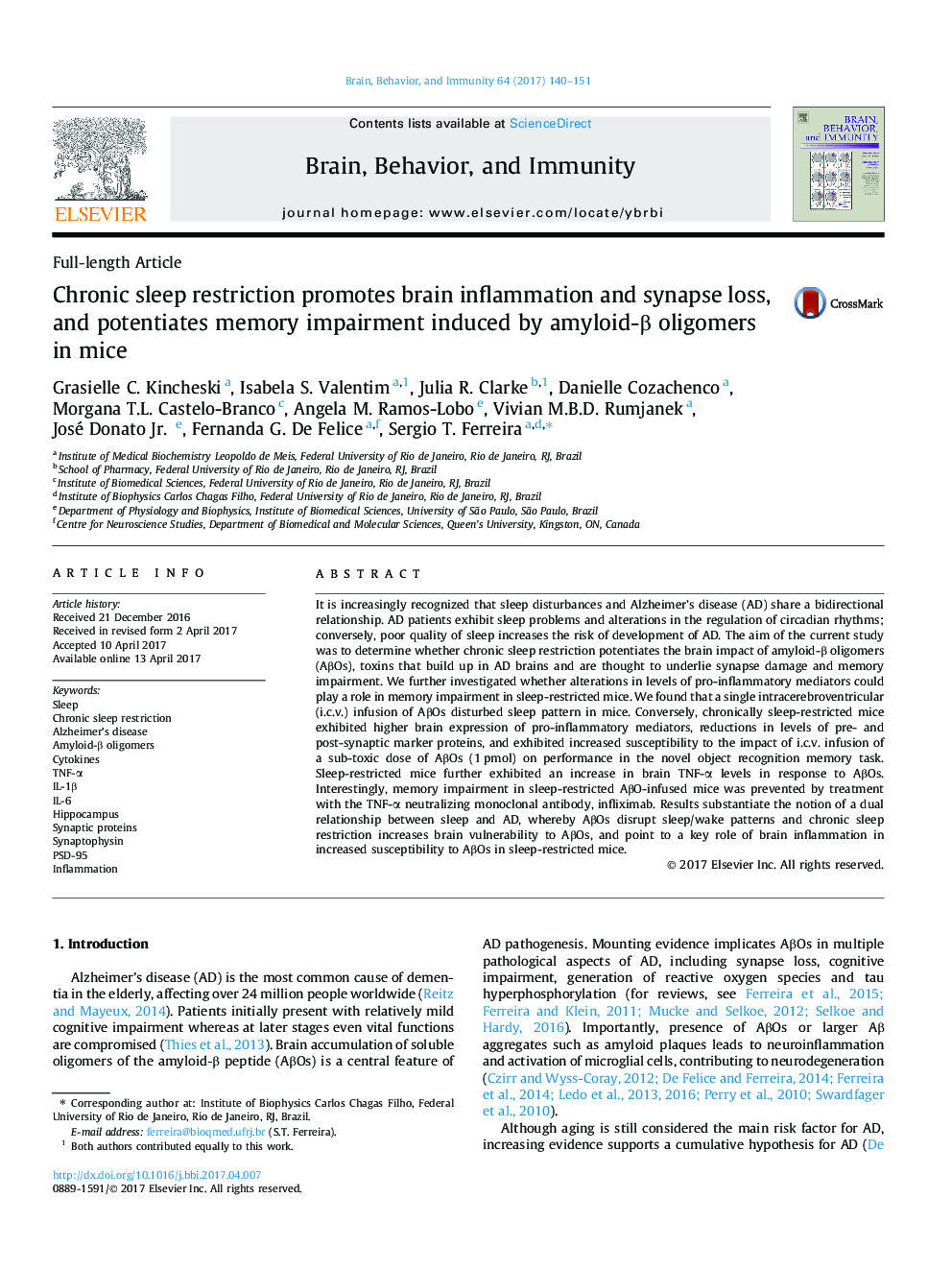| Article ID | Journal | Published Year | Pages | File Type |
|---|---|---|---|---|
| 5040629 | Brain, Behavior, and Immunity | 2017 | 12 Pages |
â¢Amyloid-β oligomers (AβOs) induce changes in sleep pattern in mice.â¢Sleep restriction increases susceptibility to AβO-induced cognitive impairment.â¢TNF-α blockade prevents sleep effects on AβO-induced cognitive impairment.
It is increasingly recognized that sleep disturbances and Alzheimer's disease (AD) share a bidirectional relationship. AD patients exhibit sleep problems and alterations in the regulation of circadian rhythms; conversely, poor quality of sleep increases the risk of development of AD. The aim of the current study was to determine whether chronic sleep restriction potentiates the brain impact of amyloid-β oligomers (AβOs), toxins that build up in AD brains and are thought to underlie synapse damage and memory impairment. We further investigated whether alterations in levels of pro-inflammatory mediators could play a role in memory impairment in sleep-restricted mice. We found that a single intracerebroventricular (i.c.v.) infusion of AβOs disturbed sleep pattern in mice. Conversely, chronically sleep-restricted mice exhibited higher brain expression of pro-inflammatory mediators, reductions in levels of pre- and post-synaptic marker proteins, and exhibited increased susceptibility to the impact of i.c.v. infusion of a sub-toxic dose of AβOs (1 pmol) on performance in the novel object recognition memory task. Sleep-restricted mice further exhibited an increase in brain TNF-α levels in response to AβOs. Interestingly, memory impairment in sleep-restricted AβO-infused mice was prevented by treatment with the TNF-α neutralizing monoclonal antibody, infliximab. Results substantiate the notion of a dual relationship between sleep and AD, whereby AβOs disrupt sleep/wake patterns and chronic sleep restriction increases brain vulnerability to AβOs, and point to a key role of brain inflammation in increased susceptibility to AβOs in sleep-restricted mice.
